Global Appeal 2016 to be Launched from Tokyo
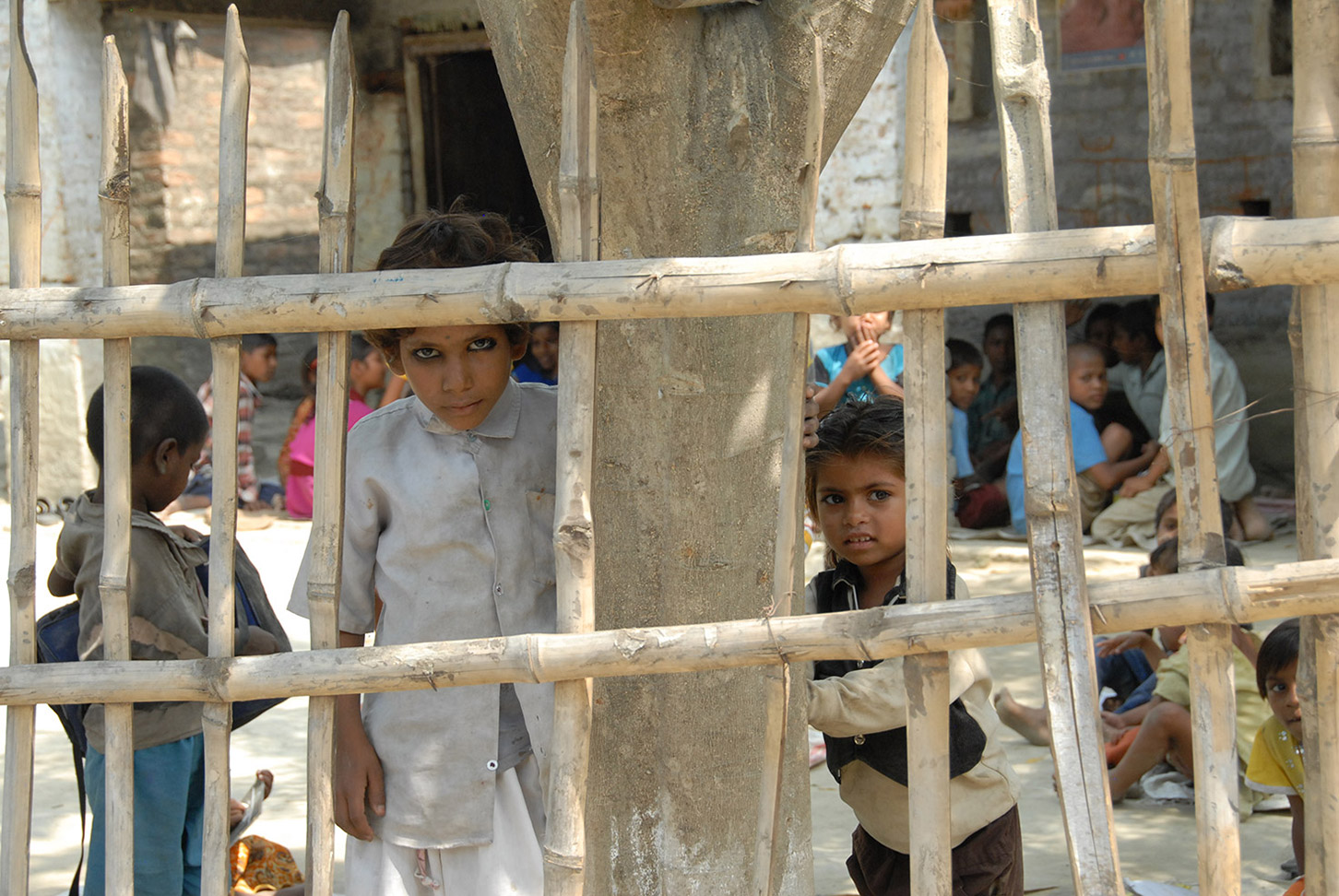
The Nippon Foundation will deliver its 11th Global Appeal to End Stigma and Discrimination against People Affected by Leprosy (the “Global Appeal”) to coincide with World Leprosy Day, which this year will be observed on January 31. For the second year in a row, this year’s Global Appeal will be delivered to the world from Tokyo, on Tuesday, January 26.
Global Appeal 2016 to consider the future of leprosy-related issues
There are two aspects to leprosy-related issues: the elimination of the disease and the elimination of social discrimination. Yohei Sasakawa, Chairman of The Nippon Foundation, WHO Goodwill Ambassador for Leprosy Elimination, and Japanese Government Goodwill Ambassador for the Human Rights of Persons Affected by Leprosy, uses the example of a bicycle, which cannot run unless the two wheels move in unison, to stress that progress in resolving leprosy-related issues requires the simultaneous resolution of both of these aspects.
Together with medical, legal, educational, religious, and other organizations and individuals around the world, The Nippon Foundation has delivered a Global Appeal in late January of every year since 2006 to coincide with World Leprosy Day, to spread the word that leprosy is curable, treatment is free, and there are no grounds for prejudice or discrimination.
Last year’s 10th Global Appeal was the first time the launch was held in Tokyo. The launch ceremony was attended by Japanese Prime Minister Shinzo Abe and Minister of Health, Labour and Welfare Yasuhisa Shiozaki, and on the following day a group of people affected by leprosy from around the world had the opportunity to meet with Their Majesties the Emperor and Empress of Japan. Both of these events helped to promote an awareness of leprosy-related issues in Japan and around the world.
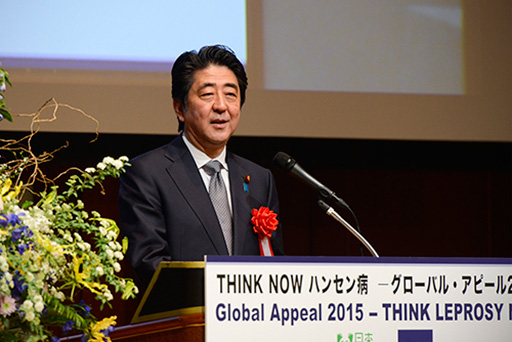
The theme of this year’s 11th Global Appeal is “Thinking about discrimination and taking action, from the perspective of leprosy,” and the appeal will be delivered to people affected by leprosy and their families, medical professionals, human rights experts, and representatives of NGOs around the world.
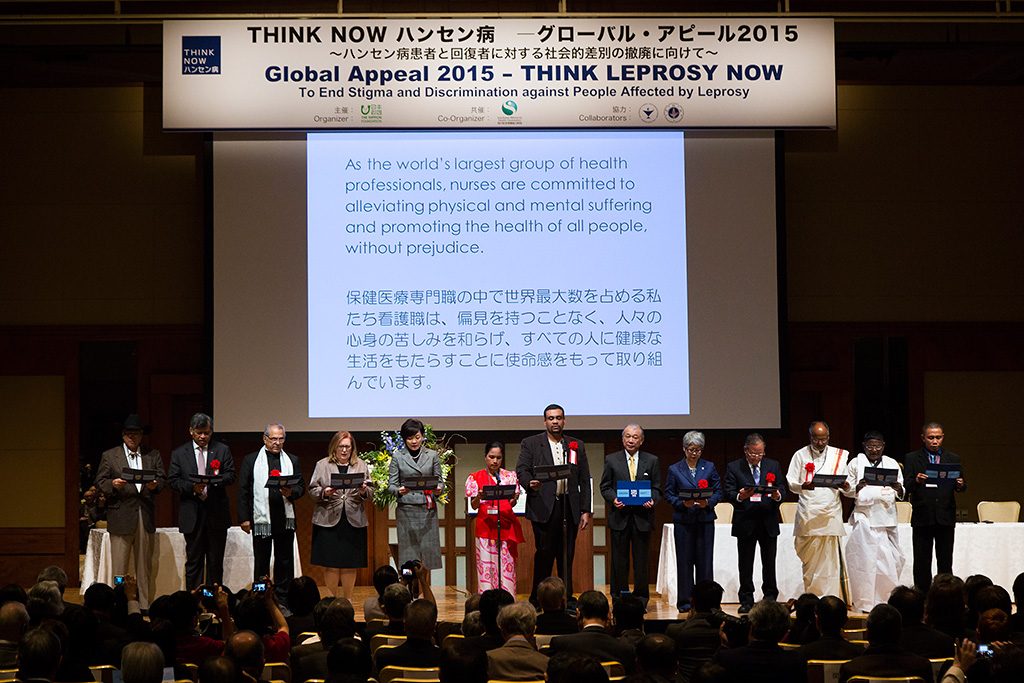
Global Appeal 2016 to promote understanding of leprosy among young people of the next generation
The Nippon Foundation will be partnering with Junior Chamber International to deliver Global Appeal 2016. JCI is an international chamber of young people aged 18 to 40, who take initiative to solve local challenges as the social leaders of the next generation. A deeper understanding of leprosy and action by young people are indispensable to ensuring that issues related to the disease continue to be addressed by the next generation.
Over the next few months, The Nippon Foundation and JCI will hold events to promote a better understanding of leprosy in countries where the disease remains a major issue, including India and Brazil.
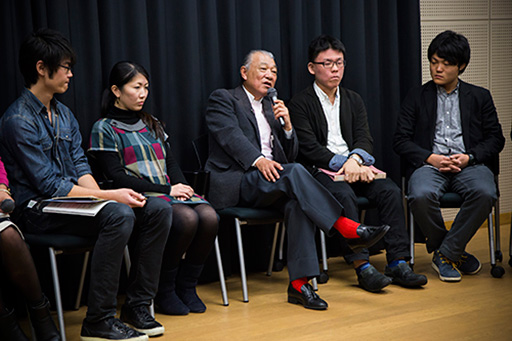
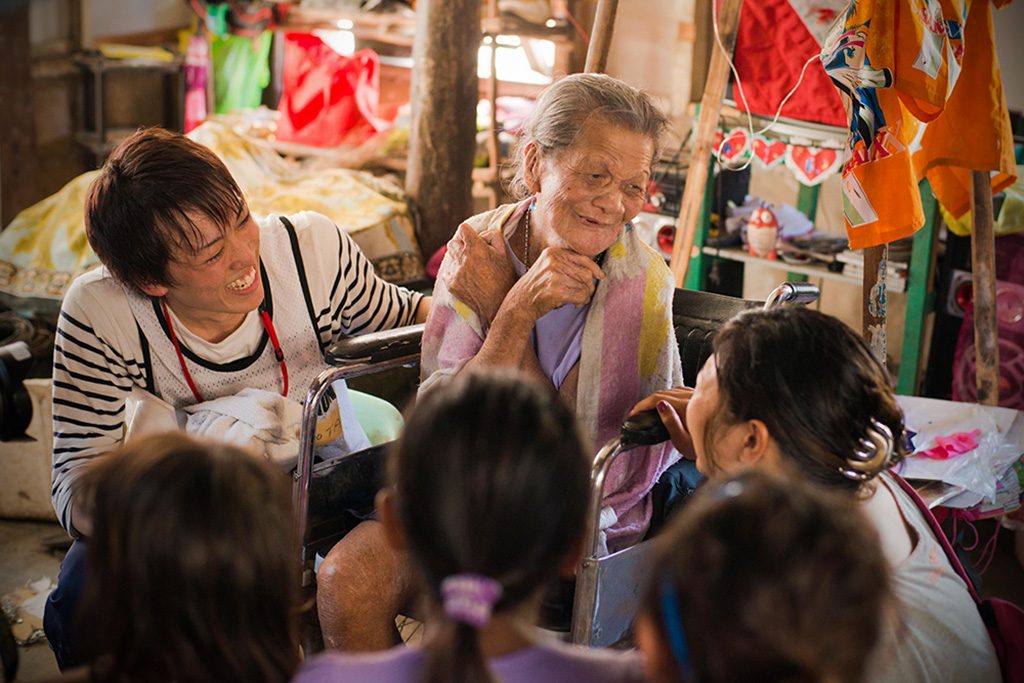
Related events
The Nippon Foundation will hold several events in conjunction with the Global Appeal, including a World Café networking event for people affected by leprosy from around the world and Japanese young people, and a Bibliobattle competition to introduce books related to leprosy.
In addition, to ensure that the history of leprosy is preserved for future generations, The Nippon Foundation and the Sasakawa Memorial Health Foundation will hold a Mankind Heritage World Conference over three days.
Since the development of effective medical treatment in the 1980s, significant success has been achieved toward the elimination of leprosy as a disease, but this has also led to an impression of leprosy as a disease of the past, and the store of records and memories from the long history of the disease is rapidly disappearing. In the past, people in Japan who contracted leprosy were forced to live apart from society and were not allowed to have children, so many people affected by leprosy have no children or grandchildren. Today, the average age of these people is 84, meaning there are increasingly fewer opportunities for them to share their experiences of overcoming hardship and fighting for their human rights.
To date historical materials have been recorded and preserved in individual countries and regions, and this conference will bring together people from around the world who have a common understanding of the problem, to discuss ways to move forward to the next stage of historical preservation.
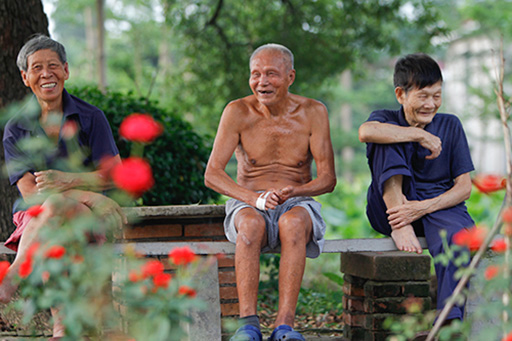
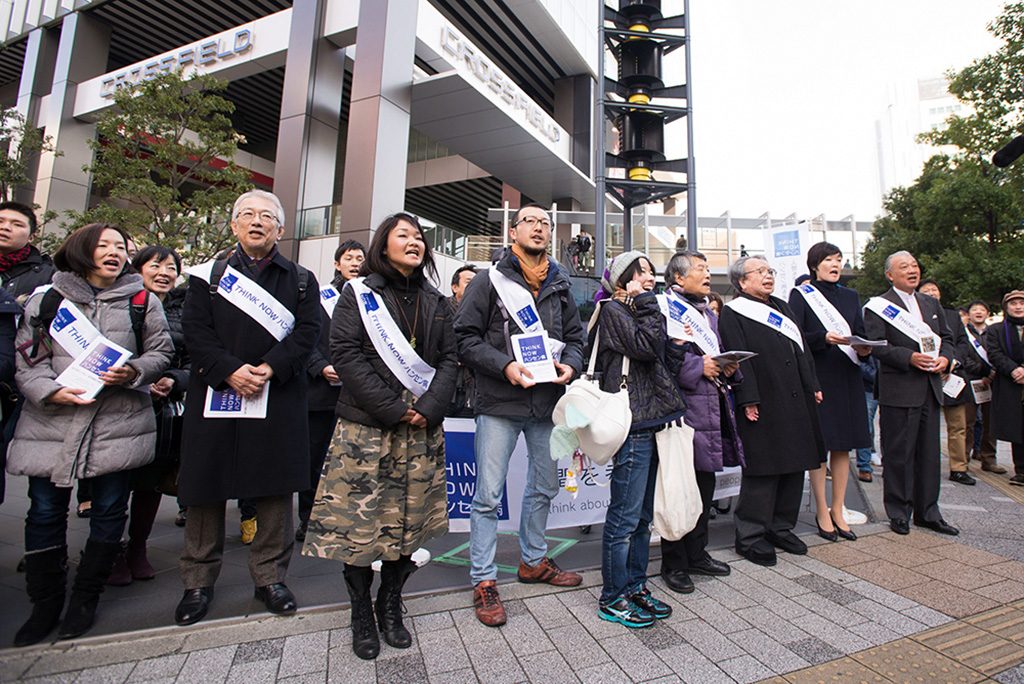
A photo exhibition showing the lives of people affected by leprosy, titled “Think about leprosy, think about people,” will also be held in Tokyo, Osaka, and Fukuoka. The THINK LEPROSY NOW campaign to promote leprosy awareness will continue after the Global Appeal, as The Nippon Foundation continues to work to deepen people’s understanding of leprosy and encourage people to think about prejudice and discrimination, and take action.



